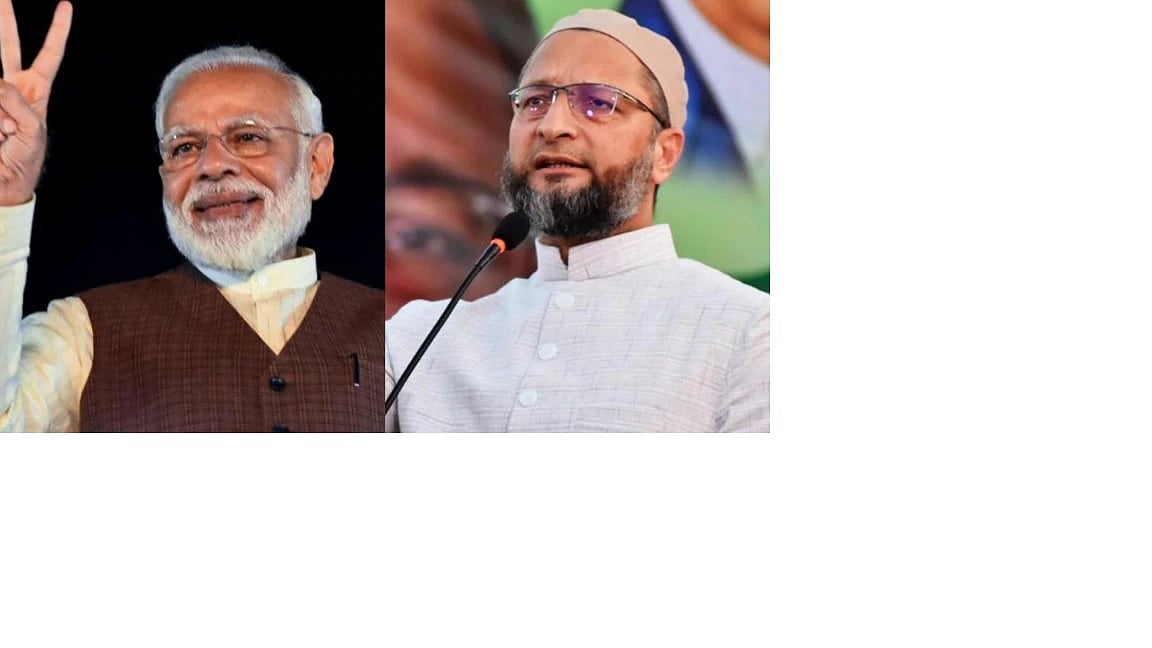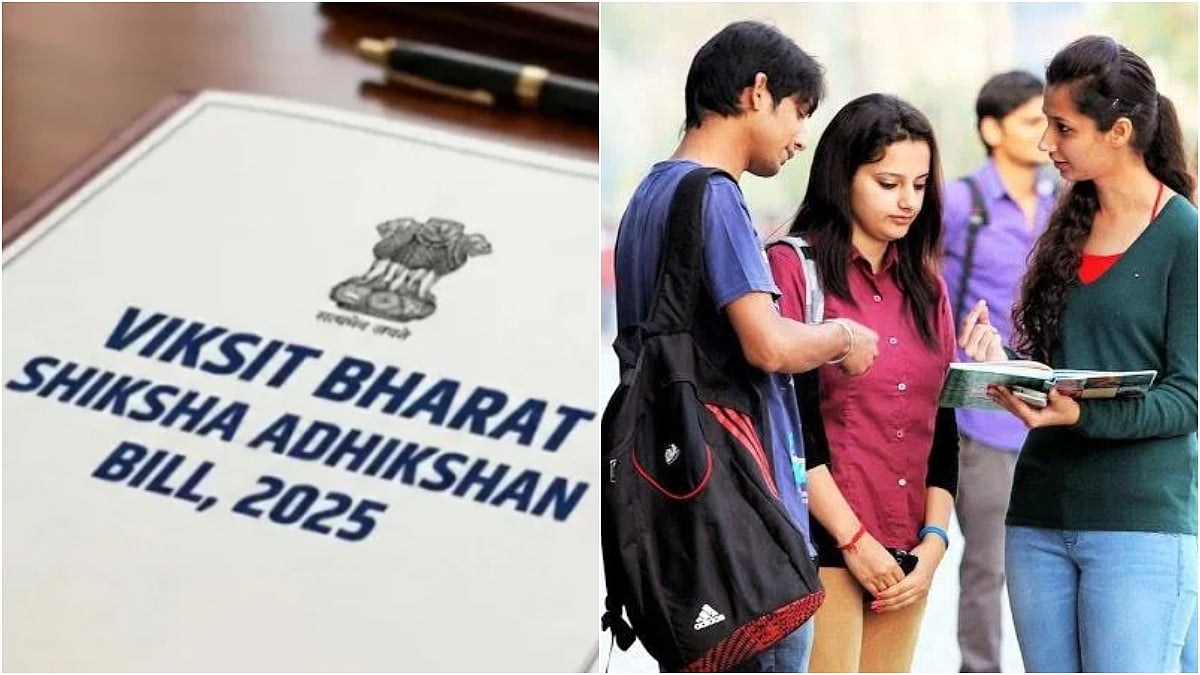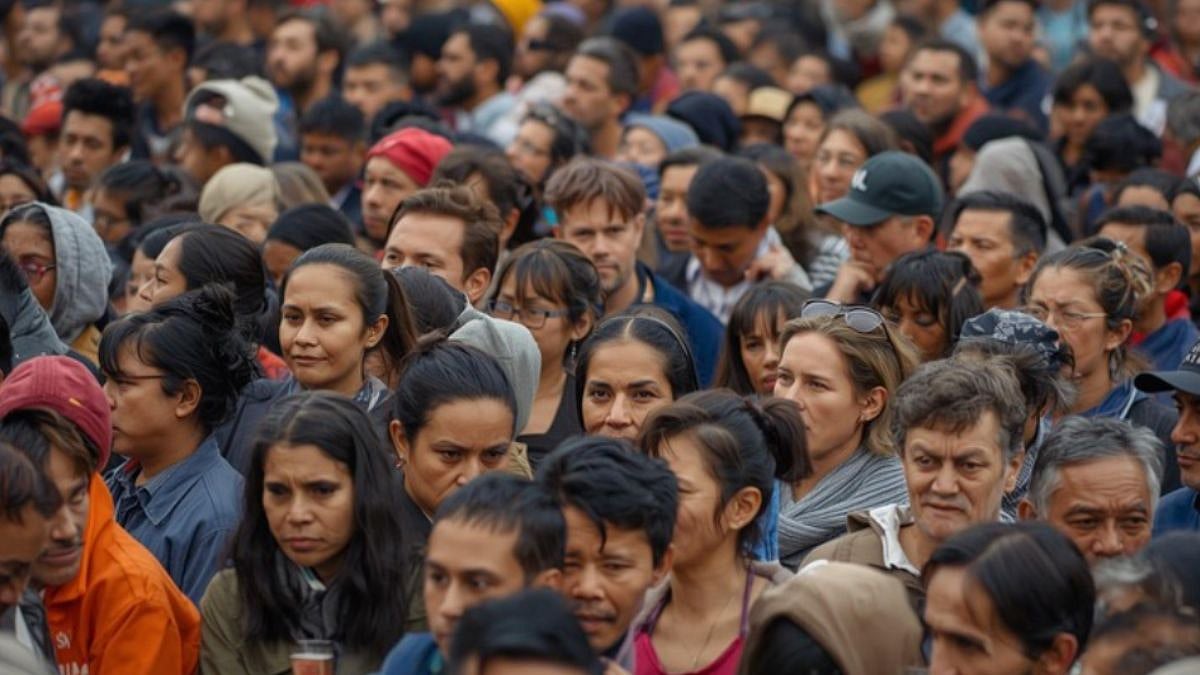The Muslim community in India, the largest minority of roughly 172 million people who account for 14.2 per cent of India’s total population of roughly 1.32 billion, has gone through a tough time in recent years in the backdrop of the RSS and BJP’s Hindutva politics. While the government headed by Prime Minister Narendra Modi is accused of eroding the secular and liberal principles of the Constitution, it is common knowledge that the BJP thrives on the grievances and prejudices of the majority community against the minorities. The last six years have been hard for India’s largest minority – they have faced lynchings, riots, and social and political alienation.
The Muslim community’s response to the majoritarian assault on their fundamental rights, lives and livelihood has been completely unexpected: they have embraced and emphasised their faith in India’s liberal democracy and the Constitution. By insisting on their Constitutional rights as citizens, they have resorted to peaceful protests against discriminatory laws and reposed faith in the judiciary to seek equality from India’s secular Constitution. This is unusual for a community that is seen as socially and educationally backward, has no political leadership to speak about problems and grievances of the community and little political space and representation in Parliament and state legislative assemblies.
Vote disruptor
Since Independence, the Muslims have, by and large, voted for the Congress, which has always projected itself as an inclusive and secular party. But the rise of the BJP, riding on the wave of Hindutva politics, has caused a huge disruption in the way Indians prefer to vote for political parties in elections. Data suggests the consolidation of Hindu votes has given the BJP a huge advantage over the Congress and regional parties. Since the 1990s, there has been a major churn in India’s politics, with the creation of regional parties based on caste allegiance and regional pride. Prominent parties in the regional/caste classification include the Shiv Sena, Samajwadi Party, the BSP, the RJD, the JDU, the BJD, the TDP, the Trinamool Congress, the YSR Congress, the JDS and the JMM.
This regional/caste explosion has had a massive impact on the Congress’s share of the political space and its vote share. Things changed further, with the mainstreaming of the BJP from a centrist party under Vajpayee and Advani to a right-wing Hindutva party under Modi and Amit Shah. The churn in the political space has led to the marginalisation of the Muslims, thus making the largest minority community a political orphan. This is largely because of two reasons: one, the marginalisation of the Congress, the go-to party for Muslims to protect their rights and check Hindu communalism, and two, the absence of an all-India Muslim party, a political voice for the community to speak on its issues, problems and constitutional rights in the corridors of power.
Muslim-centric parties
While the All-India Muslim League of the pre-Independence era that demanded the creation of Pakistan was disbanded after Independence, the Indian Union Muslim League that took roots in Kerala and had scattered support in other states has been an inconsequential player in national politics. This is because Muslims, despite the overhang of partition and name calling, have voted for secular parties for decades, in both state and national elections. Not that there have not been Muslim-centric parties in India. There have been a few, like the AIUDF in Assam and the IUML in Kerala and the All India Majlis-e-Ittehadul Muslimeen (AIMIM) in Telangana. But they have been largely confined to their respective states and have never tried to reach out to voters outside their home states.
However, lately, the AIMIM proven itself to be the exception. Starting in 1960, when it had its first electoral victory in the Hyderabad Municipal Corporation election, the AIMIM has long thrived in Hyderabad, winning many municipal elections and producing many mayors, three of them Hindus. Six decades later, led by its president Asaduddin Owaisi, the Hyderabad-based regional party has found an electoral foothold in Maharashtra, Karnataka, and Uttar Pradesh and more recently in Bihar, where the AIMIM won five of the 20 seats it contested in the assembly poll. Owaisi’s national ambition for the AIMIM seems to be delivering good results for the party, which largely targets constituencies dominated by Muslims.
AIMIM poll forays
In 2012, the AIMIM’s foray into local elections in Maharashtra and Karnataka won the party several seats. This was followed by civic body elections in UP in 2017, where it won 31 of the 78 seats it contested. In the 2019 general election, the AIMIM contested 47 Lok Sabha seats in Maharashtra in an alliance with Prakash Ambedkar’s Dalit party and won one seat, its first parliamentary seat outside of Hyderabad. Its recent performance in Bihar was a huge surprise; the Congress blamed the AIMIM for the Mahagathbandhan’s loss by splitting the votes in Seemanchal region, where the Muslim population ranges between 50 and 70 per cent of the electorate. After the Bihar breakthrough, the AIMIM is now eyeing to find a footing in West Bengal, another state like Bihar, with a sizeable Muslim population.
On January 3, Owaisi announced that his party would contest the upcoming assembly election with the local influential Muslim cleric Pirzada Abbas Siddiqui, who represents the revered Muslim pilgrimage site Furfura Sharif in Hooghly. Clerics from Furfura have influence in the four South Bengal districts of Hooghly, Howrah, North and South 24 Parganas. The AIMIM has never been a factor in Bengal, but Owaisi’s recent political move has left analysts guessing. Political experts think that the coming together of Owaisi and Siddiqui could spell trouble for Mamata Banerjee’s party TMC, by splitting the Muslim votes, which could benefit the BJP. Muslims comprise 27 per cent of Bengal’s population. Traditionally, they have voted for the Congress and the Left Front but in the last 10 years they have largely backed the TMC.
‘B-team of the BJP’
Often accused of helping the BJP win elections, the AIMIM has repeatedly been called the ‘B-team of the BJP’, a charge that has dogged the AIMIM for long but has been refuted by Owaisi. Going by their politics, there is little doubt that the BJP and the AIMIM end up helping each other in elections. Over the past decade, Owaisi has been seen as a leader of Muslims. His national ambition, to be the face of Muslim politics, has made him an easy target of the RSS-BJP. His poll plank is playing on the growing resentment against secular parties that have had the Muslim community’s support over the years but have failed to address the community’s issues and not done enough to uplift it from the educational, social and economic backwardness. Ideologically, the BJP and AIMIM appear professed enemies but there are quite a few similarities between the two.
Both are right-wing parties, albeit with different religious ideologies; both do religion-based politics and bank on exploiting the insecurities of their respective core vote banks; and both benefit from polarisation, as they are able to garner votes on their religious appeal. While the BJP speaks of Hindu nationalism and has challenged the idea of secularism, the AIMIM under Owaisi also speaks a Muslim nationalist language, though Owaisi has a deep conviction in democracy as a necessary political system for the well-being of Muslims in India. But the AIMIM’s spread could have serious implications for the secular parties, particularly the Congress and some regional parties like the SP and the RJD. If Muslims move away from secular parties, the BJP’s winning possibilities will increase in state and national elections.
The author is an independent senior journalist









